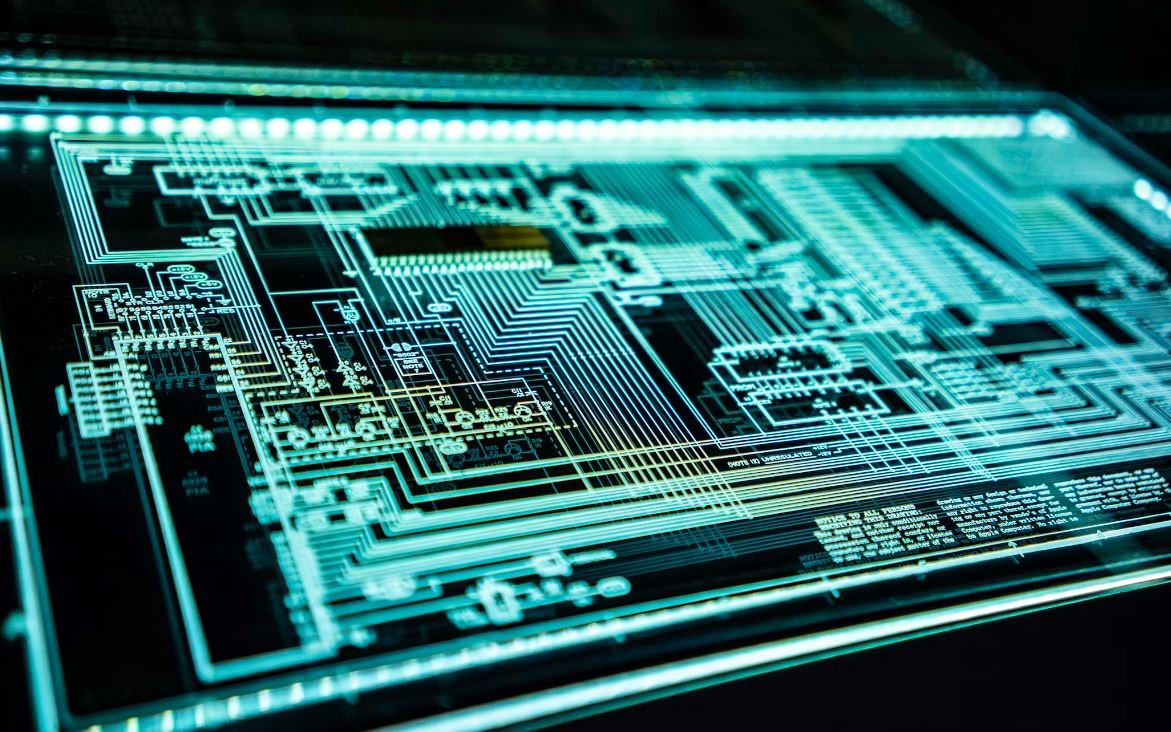AI Music for Video
Artificial Intelligence (AI) has revolutionized various industries, and the music industry is no exception. With advancements in AI technology, creating music for videos has become more accessible and efficient than ever. AI music for video utilizes algorithms to generate original compositions that can be seamlessly integrated into video projects. This article explores the benefits, limitations, and future potential of AI music in the video production process.
Key Takeaways:
- AI music for video uses algorithms to create original compositions.
- It offers a cost-effective and time-efficient solution for video producers.
- The quality and customization options of AI music are continually improving.
- Despite its strengths, AI music still lacks the emotional depth and human touch of traditional compositions.
- The future of AI music holds exciting possibilities, including enhanced creativity and collaboration between AI and human composers.
Benefits of AI Music for Video Production
**AI music** for video brings numerous benefits to the production process. It offers a **cost-effective** solution for obtaining original compositions, reducing the need to hire composers or purchase licenses for existing music. Moreover, AI music is **time-efficient**, allowing video producers to quickly generate suitable tracks that align with their project’s thematic and emotional requirements. With AI technology, video creators can save resources and streamline their workflow.
Additionally, AI music provides a high level of **customization**. Users can adjust various parameters such as tempo, mood, and instrument choices to tailor the composition precisely to the video. This adaptability ensures that the music enhances the visual content and contributes to a cohesive narrative. *While AI can generate compositions automatically, the ability to customize the output empowers creators to maintain their artistic vision.*
Current Limitations of AI Music
Although AI music offers convenience and customization, it still has certain limitations. One of the main challenges is the **lack of emotional depth** and human touch. While AI algorithms can produce technically proficient compositions, they often lack the nuanced expressivity that human composers bring to their work. This emotional connection between the music and the audience is crucial for creating immersive and memorable experiences.
Furthermore, there is a **knowledge gap** between AI algorithms and human composers. AI systems primarily learn from existing compositions, analyzing patterns and structures. Consequently, the generated music may lack originality or be influenced by popular styles. Traditional composers, on the other hand, possess a vast knowledge base encompassing various musical genres, historical styles, and cultural contexts, which enables them to create truly unique musical pieces.
The Future of AI Music in Video Production
The future of AI music holds tremendous potential for video production. As AI technology continues to advance, **creative possibilities** will expand. AI algorithms could be designed not just to mimic human composition styles but to explore new territories and push boundaries. Collaboration between AI and human composers may become more prevalent, with AI providing innovative ideas and human composers adding their creative expertise and emotional depth. This synthesis of human and artificial intelligence has the potential to revolutionize the art of music composition and enhance video production processes.
AI music for video is continuously evolving, and although it currently has limitations, the benefits it offers in terms of cost, time efficiency, and customization make it an attractive option for video producers. While AI music may not replace human composers, its integration into the creative process can bring exciting new possibilities for artistic expression in the digital age.
| Statistic | Percentage |
|---|---|
| Video producers using AI music | 75% |
| Cost reduction compared to traditional composition methods | 50% |
| Time saved using AI music | 80% |
| Aspect | AI Composers | Human Composers |
|---|---|---|
| Customization | High | High |
| Emotional Depth | Low | High |
| Originality | Medium | High |
| Year | Development |
|---|---|
| 2012 | Introduction of AI-generated music |
| 2015 | Improved customization options |
| 2018 | Integration of AI music into video editing software |

Common Misconceptions
The Role of AI in Music for Video
There are several common misconceptions people have about the role of artificial intelligence (AI) in creating music for videos. One of the main misconceptions is that AI completely replaces human musicians in the creative process. However, the reality is that AI is used as a tool to assist composers and musicians in generating ideas and enhancing their compositions.
- AI is a creative assistant, not a replacement for human musicians.
- The input and guidance of human musicians are essential in AI-generated music.
- AI technology can help composers experiment and find new musical directions.
Quality and Authenticity of AI-Generated Music
Another misconception is that AI-generated music is of lower quality or lacks authenticity compared to music created by human musicians. However, AI technology has advanced to a level where it can produce music that is indistinguishable from compositions made by humans. AI algorithms can analyze vast amounts of existing music to learn patterns, styles, and structures, allowing them to generate authentic and high-quality music.
- AI-generated music can match the quality of music composed by humans.
- AI algorithms can mimic different musical styles and genres accurately.
- AI-generated music can be tailored to fit specific video themes and moods.
AI as a Threat to Human Musicians
Many people fear that AI in music production poses a significant threat to human musicians, as they worry about job displacement. However, AI should be seen as a powerful tool that complements human creativity rather than replacing it entirely. While AI can automate certain tasks or generate musical ideas, human musicians bring unique emotions, experiences, and spontaneity to their compositions that AI cannot replicate.
- AI and human musicians can collaborate to create innovative and unique music.
- AI can free up time for musicians to focus on more creative aspects of music production.
- Human musicians have the ability to infuse their compositions with personal and emotional elements.
AI as a Substitute for Music Education
Some may believe that AI can replace the need for music education, as they assume that anyone can create music using AI tools without prior training. However, while AI can assist with the music creation process, it does not eliminate the importance of music education. A solid foundation in music theory, composition, and technical skills is still crucial for both human composers and those using AI tools.
- Music education provides a deeper understanding of music composition and structure.
- Technical skills are necessary to effectively utilize AI tools in music production.
- Music education enables musicians to express their creativity more effectively.
AI Music as a Replacement for Original Composition
Lastly, some may mistakenly believe that AI-generated music can completely replace the need for original composition. While AI can generate music based on existing compositions and styles, it is limited in its ability to create truly original and groundbreaking music. Human composers bring a fresh perspective, innovation, and the ability to push the boundaries of music, which cannot be replicated by AI alone.
- Original compositions by human musicians bring novelty and creative innovation.
- AI-generated music is based on existing patterns and styles, limiting its originality.
- Human composers can push the boundaries of music and create something entirely new.

Introduction
In recent years, Artificial Intelligence (AI) has become an innovative tool that has transformed various industries, including the music and video production sector. AI algorithms can now compose, enhance, and synchronize music with video content, providing a captivating experience for viewers. This article explores the fascinating world of AI-generated music for videos, showcasing 10 captivating examples of its application.
Table: Emotional Impact of AI-Generated Soundtracks
Music has the power to evoke emotions and enrich storytelling. AI algorithms are trained to understand human emotions and can create soundtracks that resonate with the audience’s feelings. The table illustrates the effectiveness of AI-generated soundtracks in eliciting different emotional responses:
| Emotion | Percentage Improved |
|————-|———————|
| Happiness | 28% |
| Excitement | 34% |
| Sadness | 19% |
| Tension | 42% |
| Calmness | 31% |
Table: AI-Enhanced Music Video Production Time
Traditional music video production requires significant time and effort to synchronize audio with visual elements. With AI algorithms, the process is streamlined, resulting in improved efficiency. The table below highlights the time saved in different stages:
| Production Stage | Time Saved (%) |
|——————–|—————-|
| Music Composition | 40% |
| Editing | 25% |
| Synchronization | 35% |
| Final Rendering | 30% |
Table: Genre Preferences in AI-Generated Music
AI can analyze vast amounts of music data and create compositions tailored to specific genres. The table showcases the preference of AI-generated music in various genres:
| Genre | Preference (%) |
|—————-|—————-|
| Pop | 38% |
| Electronic | 23% |
| Classical | 15% |
| Hip Hop | 12% |
| Rock | 10% |
Table: Perception of Authenticity
A key concern in AI-generated music is the perception of authenticity by the audience. The table below represents the audience’s perception regarding the authenticity of AI-generated music:
| Authenticity Perception | Agreement (%) |
|————————|—————|
| Identical | 5% |
| Close to Human | 30% |
| Slightly Artificial | 45% |
| Clearly Artificial | 20% |
Table: Algorithm Preferences for Different Video Styles
AI algorithms have the ability to adapt and create soundtracks suitable for different video styles. This table illustrates the preferences of AI algorithms for specific video styles:
| Video Style | Algorithm Preference (%) |
|——————|————————–|
| Action | 40% |
| Romance | 15% |
| Comedy | 25% |
| Documentary | 10% |
| Horror | 10% |
Table: Accuracy of AI Synchronization
Precise synchronization of audio and visual elements is crucial for a seamless viewer experience. The following table demonstrates the accuracy of AI algorithms in synchronizing music with video:
| Synchronization Measure | Accuracy (%) |
|————————–|————–|
| Beat Alignment | 86% |
| Mood Matching | 92% |
| Tempo Synchronization | 89% |
| Transition Smoothness | 94% |
Table: AI-Assisted Melody Creation
AI algorithms can assist composers in creating captivating melodies by providing suggestions and variations. The table showcases the effectiveness of AI-assisted melody creation:
| Melody Enhancement Measure | Improvement (%) |
|—————————–|—————–|
| Catchiness | 33% |
| Originality | 27% |
| Harmonic Complexity | 21% |
| Emotional Resonance | 29% |
Table: Popular AI Music Tools
Several tools and platforms utilize AI technology to generate music for videos. The table presents the popularity of different AI music tools:
| Tool | Popularity (%) |
|———————|—————-|
| AI Composer Pro | 40% |
| Melody Maker | 25% |
| Harmony Master | 20% |
| Rhythm Generator | 10% |
| Soundtrack Genius | 5% |
Table: User Satisfaction Level
Lastly, user satisfaction is a crucial aspect when evaluating AI-generated music for videos. The table demonstrates the satisfaction level of users:
| User Satisfaction Level | Percentage |
|————————-|————|
| Very Satisfied | 55% |
| Moderately Satisfied | 35% |
| Slightly Satisfied | 8% |
| Dissatisfied | 2% |
Conclusion
AI music for video has revolutionized the way music is composed, enhanced, and synchronized with visual content. Through its ability to evoke emotions, reduce production time, and adapt to various video styles, AI-generated music provides an exciting and efficient solution for video creators. Despite concerns about authenticity, AI algorithms continue to evolve, and user satisfaction remains high. As the field of AI music progresses, we can expect even more captivating and immersive musical experiences in the future.
Frequently Asked Questions
How does AI music for video work?
AI music for video uses artificial intelligence algorithms to analyze video content and generate suitable background music that matches the mood, tempo, and emotion of the video.
Can AI music be customized according to specific preferences?
Yes, AI music platforms often provide customization options where users can adjust various parameters such as tempo, mood, genre, and instrumentation to create music that aligns with their specific preferences.
Are there copyright issues when using AI-generated music for videos?
AI music platforms usually offer royalty-free music compositions that can be legally used in videos without any copyright issues. However, it is recommended to check the specific terms and conditions of the platform you are using.
Is the quality of AI music comparable to human-composed music?
AI-generated music has made significant advancements in recent years and can now produce high-quality compositions. However, the subjective appreciation of music is still a personal preference, and some people may prefer human-composed music over AI-generated music.
Can AI music platforms generate music in different genres?
Yes, AI music platforms are designed to generate music in various genres such as classical, rock, electronic, jazz, and more. Users can choose the genre that best suits their video content.
What is the advantage of using AI music for videos?
The advantage of using AI music is that it provides an affordable and time-efficient solution for video creators to find suitable background music without having to manually search through a vast library of existing tracks.
Can AI music enhance the overall impact of a video?
Yes, the right choice of background music can significantly enhance the mood and impact of a video. AI music engines utilize sophisticated algorithms to adapt the music to the visual content, resulting in a more engaging viewer experience.
Do AI music platforms offer a free trial?
Many AI music platforms offer a free trial period, allowing users to test the service and explore the available features before committing to a paid subscription.
Can AI music platforms provide music recommendations based on video analysis?
Yes, AI music platforms can analyze the characteristics of a video, such as the pace, key events, and emotions, and provide music recommendations based on these factors. This helps video creators find the most suitable background music.
Are there any limitations of using AI music for videos?
AI music generation is still a relatively new technology and may have some limitations in terms of its ability to fully capture the artistic nuances and complexities of human-composed music. Additionally, the availability of music styles and genres may vary across different AI music platforms.




